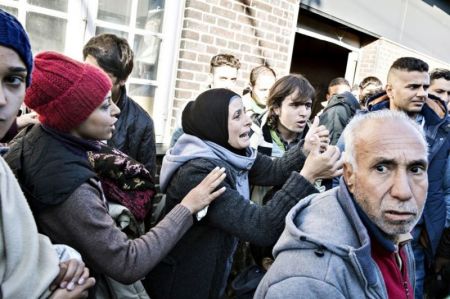Majority of Muslim Migrants in Europe Believe in Supremacy of Sharia Law: Gatestone Analysis

An analysis of surveys conducted among Muslim migrants in Europe shows that the majority of them value sharia law over national law and believe in the supremacy of Islam over other religions, according to Gatestone Institute.
Citing a recent study done by Ednan Aslan, professor of Islamic Religious Education at the University of Vienna, the Institute reported that for more than 51 percent of the interviewees, the supremacy of Islam over other religions is undisputed, and 55 percent believe in hell for unbelievers.
Aslan interviewed a sample of 288 of the roughly 4,000 predominantly Afghan asylum seekers in the Austrian city of Graz, on behalf of the city's integration department.
Another 2016 study in the U.K. showed that 43 percent of British Muslims "believed that parts of the Islamic legal system should replace British law while only 22 percent opposed the idea," the Institute highlighted.
Yet another poll, also from 2016, found that nearly a quarter of all Muslims supported the introduction of sharia law in some areas of Britain, and 39 percent agreed that "wives should always obey their husbands." Nearly a third thought it was acceptable for a British Muslim man to have more than one wife.
The Institute further cited a 2014 study of Moroccan and Turkish Muslims in Germany, France, the Netherlands, Belgium, Austria and Sweden, which revealed that an average of 65 percent said that Sharia is more important to them than the laws of the country in which they live.
The author of the analysis, Judith Bergman, commented: "None of these studies, polls, and intelligence reports appear to be making the least impression on European leaders. In the starry-eyed words of [EU's Commissioner for Migration, Home Affairs and Citizenship, Dimitris] Avramapolous, it is not enough that the mainly Muslim migrants who have come to Europe, 'have found safety in Europe.' According to him, 'We also need to make sure they find a home.'
"The question that remains unanswered — as European leaders seek to make Islam great again on the continent — is where Europeans are supposed to make their homes."
Other findings cited by Gatestone revealed that 43 percent of Afghan migrants in Graz believe that fathers have a right to use violence on children if necessary, according to Aslan's survey.
Also, "anti-Semitism is deeply ingrained: 46% believe that Jews have 'too much influence in world affairs,' and 44% believe that Judaism is harmful. 43% opine that Jews themselves are at fault for being persecuted, while 54.5% think that Jews only care about themselves."
The study showed that two-thirds of the asylum seekers are men, mostly under 30 years old, and they are all in favor of preserving their traditional, conservative, Islamic values. And 66.3 percent of the women wear a headscarf in public, and 44.3 percent refuse to shake hands with a man.
Further, close to 50 percent of the migrants report that religion now plays a larger role in their daily lives in Europe, than it did in their native country. More than 47 percent are convinced that Jews and Christians have strayed from the "right path," and 47.8 percent think that the future of Islam would be in danger if Islam were to be interpreted in a modern and contemporary fashion.
A 2016 study of nearly 800 migrants from Syria, Iraq, Afghanistan and Eritrea in the German state of Bavaria was conducted by a German think tank, the Hanns Seidel Foundation, which showed that patriarchal beliefs were widespread among the migrants interviewed, especially among migrants from Afghanistan and the mainly non-Muslim migrants from Eritrea, over 60 percent of whom believed that women should stay at home, the Institute noted. It also showed that a majority of the migrants held anti-Semitic beliefs.





















